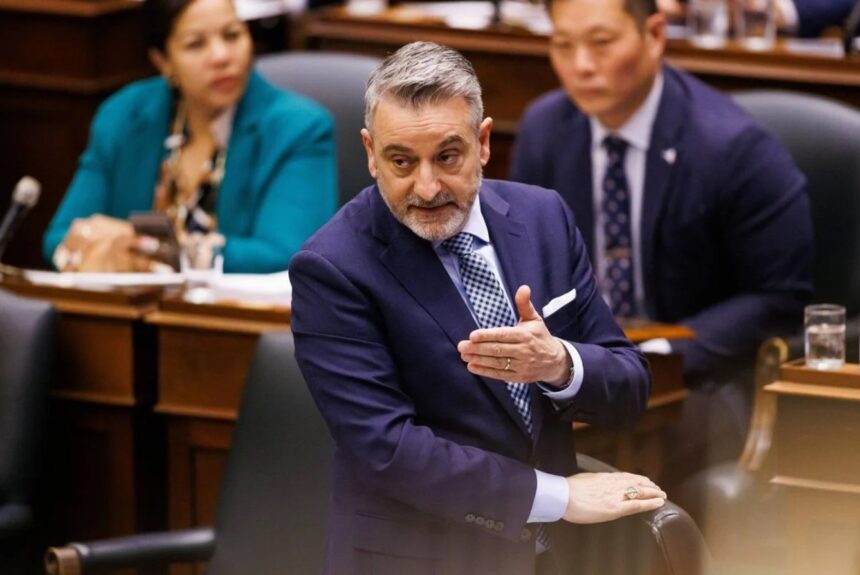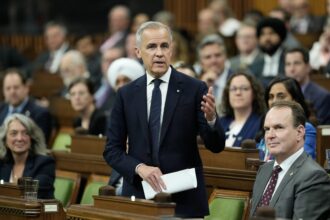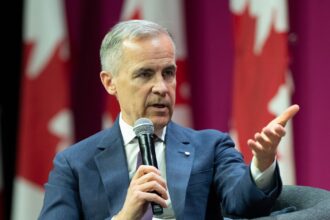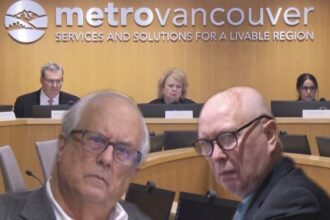In an unprecedented move that has sent shockwaves through Ontario’s education system, Premier Doug Ford announced Thursday that his government will assume direct control of four major school boards, including the Toronto District School Board (TDSB). The provincial intervention, described by the Premier as “necessary emergency measures,” comes after months of escalating tensions between the Ministry of Education and local board administrators over budget allocations and curriculum changes.
“When our children’s education is at stake, we cannot stand by while bureaucracy and mismanagement continue,” Ford declared during a press conference at Queen’s Park. “These boards have consistently failed to implement provincial directives and have misallocated taxpayer funds that should be going directly to classroom resources.”
The targeted takeover affects Ontario’s largest school board, the TDSB, along with the Peel District School Board, Ottawa-Carleton District School Board, and Thames Valley District School Board. Collectively, these boards serve nearly 600,000 students across the province.
Education Minister Stephen Lecce detailed the implementation plan, which includes appointing provincial supervisors who will assume all powers previously held by elected trustees. “This intervention will last between 12 to 24 months, during which time we’ll implement structural reforms to ensure accountability and improved student outcomes,” Lecce explained.
The announcement has drawn immediate criticism from education stakeholders. Ontario Teachers’ Federation President Maria Rodriguez condemned the move as “an authoritarian power grab that undermines democratic governance in education.” The federation has announced plans to challenge the legality of the takeover in court.
Parents’ reactions have been mixed across affected districts. Jennifer Williams, who has two children in the TDSB system, expressed cautious optimism: “If this means more resources actually reaching classrooms instead of administrative bloat, then maybe it’s needed. But I’m concerned about losing local representation in how our schools are run.”
The Ford government cites several justifications for the intervention, including alleged financial mismanagement. According to Ministry documents, the four boards collectively ran deficits exceeding $87 million last fiscal year despite receiving increased provincial funding. Additionally, standardized test scores in these districts have declined by an average of 6.8% over the past three years, significantly below provincial targets.
Political analysts note this move aligns with broader government efforts to centralize control over various public sectors. “This fits a pattern we’ve seen with regional healthcare governance and municipal planning,” notes Dr. Alan Thompson, political science professor at University of Toronto. “The question is whether this represents temporary intervention or a permanent shift in how education governance functions in Ontario.”
School board trustees, who will effectively lose their elected positions during the takeover period, have responded with outrage. TDSB Chair Priya Sharma stated: “This government has systematically underfunded education while simultaneously imposing new mandates. Now they’re using the resulting challenges as justification to seize control. This is nothing short of an attack on local democracy.”
The Ontario Public School Boards Association has called for emergency meetings to coordinate a response, while education policy experts predict significant disruption to school operations as the new academic year approaches in September.
As communities across Ontario grapple with these dramatic changes to educational governance, a fundamental question emerges: In our efforts to improve educational outcomes, are we sacrificing the democratic principles and local representation that have traditionally shaped Canada’s public education system?










